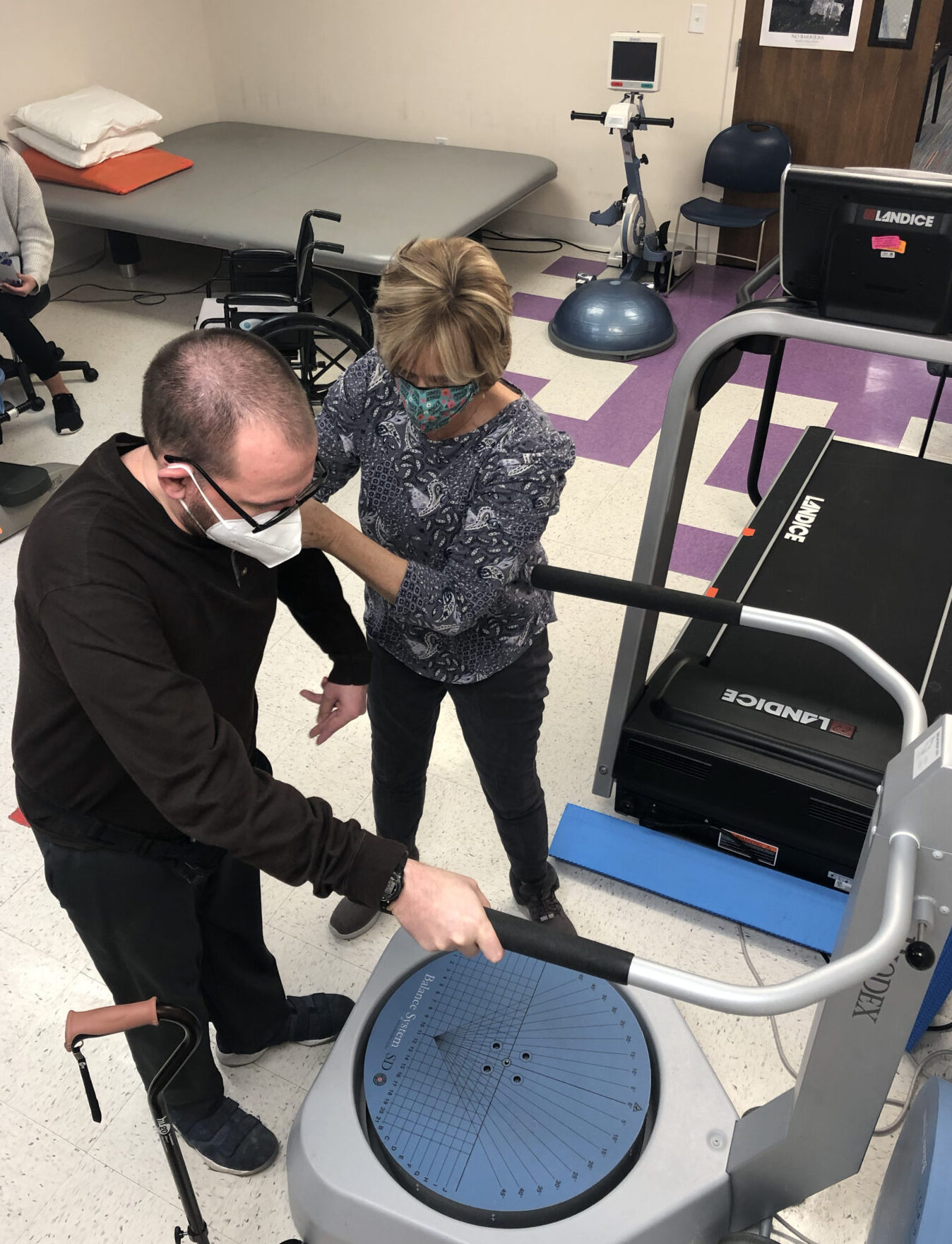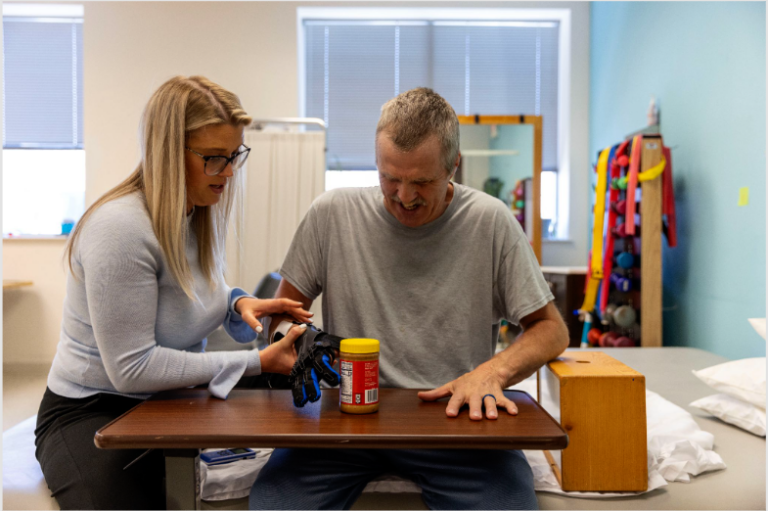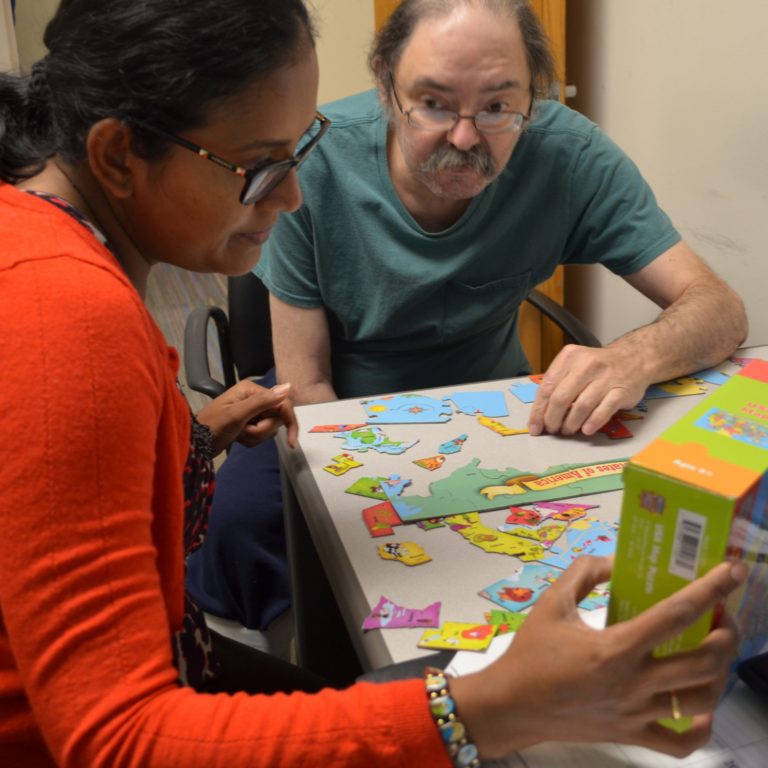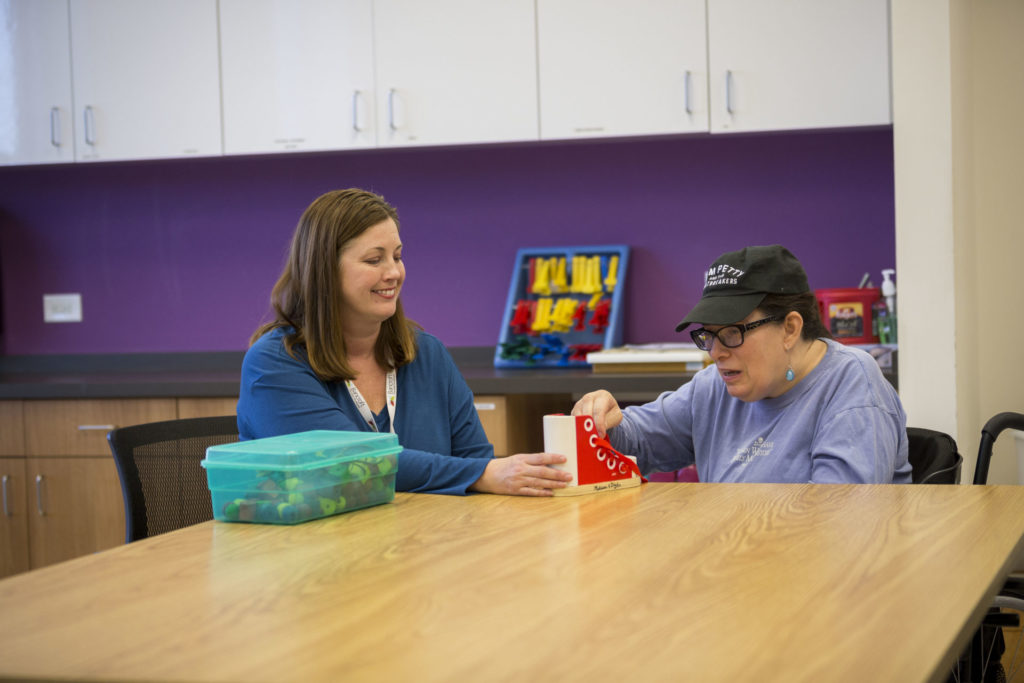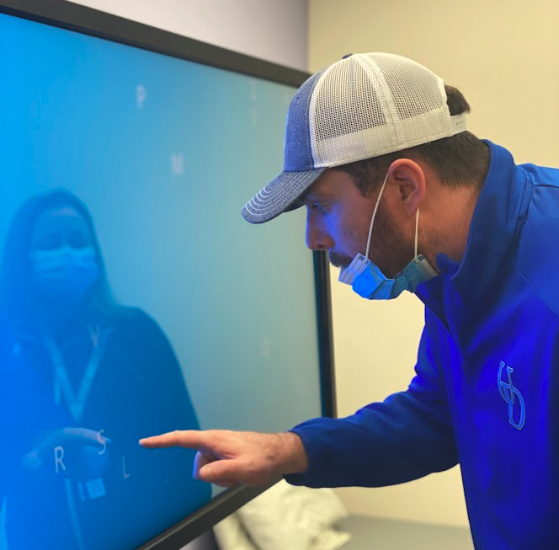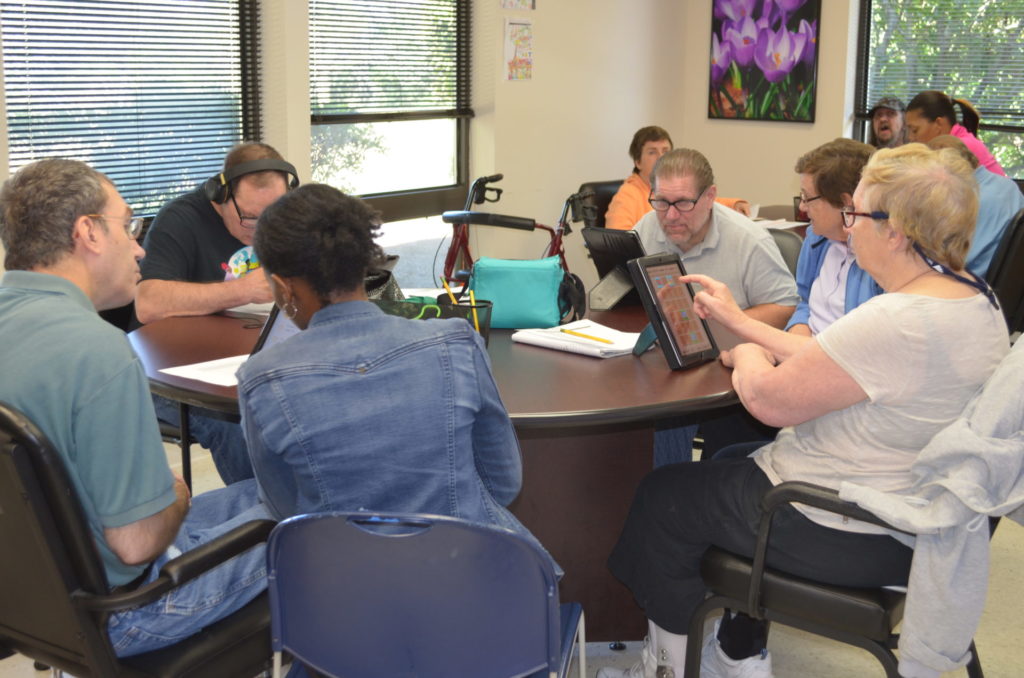

Caring for the Caregiver: Healing Potential of Psychotherapy
Caring for a loved one who has suffered a brain injury or is living with a neurological issue like dementia can be a stressful and emotionally taxing journey. In the course of providing day-to-day physical and emotional support to a loved one, caregivers may be at a loss for how to handle the changes, challenges and stressors that can impact their well-being.
Many are not prepared to take on the role of caregiver and face a unique set of challenges – often without the support needed to help them balance their own needs with those of their loved ones. Psychotherapy can be an effective tool in navigating these challenges.
The challenges of caregiving
The constant need for vigilance, the emotional strain of witnessing a loved one’s struggles and the potential lifestyle adjustments can significantly impact caregivers’ mental health and the time they devote to self-care. They may feel overwhelmed by their role and naturally experience an array of emotions including:
- Frustration
- Anger
- Fear
- Guilt
- Stress
- Anxiety
- Depression
- Loneliness
- Hopelessness
In addition, caregivers may experience negative effects to their physical health – for example, developing headaches, stomach aches, high blood pressure and a weakened immune system that increases the risk of infection. Caregivers also tend to experience more chronic health conditions like heart disease, diabetes and cancer and may be at an increased risk of substance abuse.
Psychotherapy is a powerful tool that offers emotional support, coping strategies and a safe space to effectively navigate the complex landscape of caregiving while emphasizing the importance of caregiver self-care.
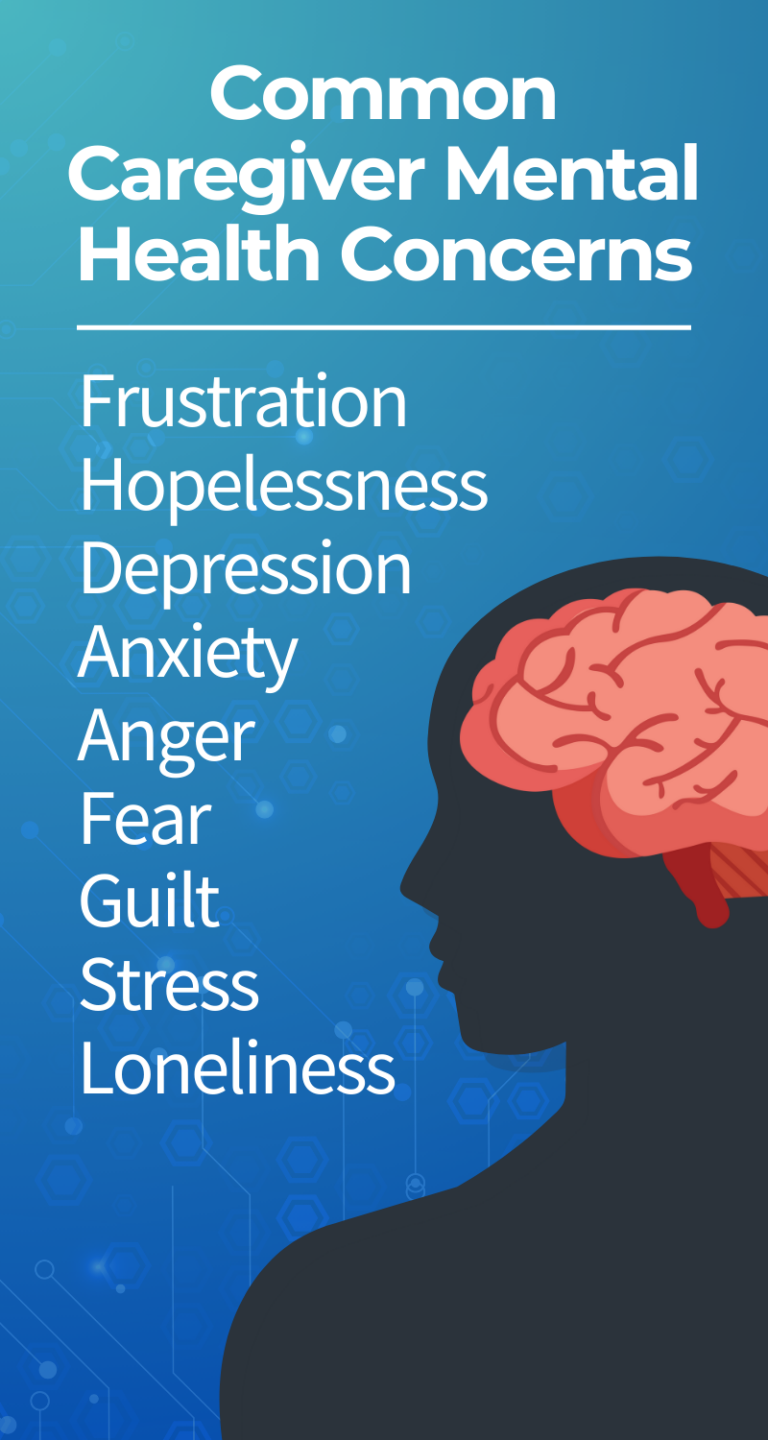

Best therapy approaches for caregivers
A therapist and caregiver will work together on a therapy approach that meets the caregiver’s unique needs and situation. The approaches to therapy for caregivers may include:
- Cognitive behavioral therapy, or CBT, to identify and challenge negative thought patterns and behaviors while developing coping strategies and improving one’s quality of life
- Acceptance and commitment therapy to accept the changes occurring to make necessary changes and move forward with their lives
- Normalizing feelings
- Stress management, including mindfulness-based approaches
- Reinforcing and building new coping skills
“Therapy has proven to be an effective and helpful approach for those who are living with mental health conditions but it is also beneficial for people experiencing unexpected changes and who feel overwhelmed from having to take on new responsibilities while managing their usual responsibilities,” says Claire McGrath, Ph.D., APP, Senior Clinical Director for Bancroft Neurorehab. “Psychotherapy can help caregivers develop new strategies to deal with their emotions and everything they are going through.”
The benefits of care from neurological experts
Seeking psychotherapy services from experts with in-depth knowledge of the effects of brain injuries and neurological issues offers caregivers the ability to talk with someone who understands their loved one’s clinical issue and can guide them appropriately.
“Providers who understand brain injury and neurological issues like dementia can give caregivers better tools to deal with their situation,” says Dr. McGrath. “Caregivers don’t need to educate a provider on what is happening with their loved one – they already know and understand.”
Dr. McGrath notes that Bancroft Neurorehab’s approach to caregiver therapy centers on emphasizing the positives – understanding that a loved one has amazing qualities and experiences in their life as well as challenges from their injury or condition.
“What helps a caregiver be healthy is for them to see the wonderful things going in their life and in the life of their loved one, as well as the parts that are challenging,” she adds. “We don’t downplay what is understandably difficult for caregivers but validate and reinforce the positive aspects that make their loved ones who they are.”
Contact Bancroft NeuroRehab
Psychotherapy serves as a beacon of support for caregivers navigating the intricate challenges of caring for a loved one with a brain injury or neurological condition. By offering emotional support, stress reduction strategies and practical coping mechanisms, psychotherapy empowers caregivers to maintain their well-being and provide the best possible care for their loved ones.
Recognizing the crucial role caregivers play in the lives of those with complex health conditions, ensuring their mental and emotional health becomes an integral part of the overall caregiving journey.
Contact Bancroft Neurorehab at 844-234-8387 to learn more about our psychotherapy services for caregivers or to make an appointment.
About the Expert:
Senior Clinical Director


Dr. McGrath is the Senior Clinical Director for Bancroft NeuroRehab and oversees psychological services. She is board-certified in Clinical Neuropsychology by the American Board of Professional Psychology and much of her clinical work has focused on the assessment and treatment of individuals with neurologic conditions including traumatic brain injury, stroke, dementia, anoxic brain injury, encephalopathy, and brain cancer.
Dr. McGrath has presented at local, national, and international conferences on evaluating cognition, agitation management, and the importance of social support in recovery from neurologic injury. She also teaches rehabilitation psychology to doctoral students at local universities.
Related Articles


Navigating Life Beyond Stroke: Shawn’s Story
Navigating Life Beyond Stroke: Shawn’s Story From Mechanic to Patient:


Embracing Balance: How Yoga Supports Brain Injury Recovery
Embracing Balance: How Yoga Supports Brain Injury Recovery The Healing


Never Giving Up: How Stephen Reclaimed His Independence After a Traumatic Brain Injury
Never Giving Up: How Stephen Reclaimed His Independence After a



